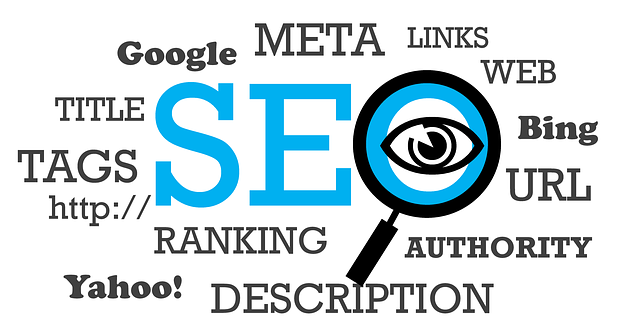In today's digital era, strong technical SEO skills are crucial for website success. The Advanced Site Audit Course equips professionals with tools and knowledge to address complex issues impacting search visibility and user experience, focusing on sitemaps, robots.txt files, and structured data. Technical SEO Training optimizes site infrastructure by teaching techniques for enhancing architecture, indexing, and crawling, ensuring accessibility and performance aligned with search algorithms. By addressing on-page SEO issues through audits, website owners can improve rankings and drive organic traffic. Mastering website structure, link profile analysis, mobile optimization, and leveraging advanced tools are key components, ultimately leading to better search engine rankings and enhanced user experiences. Case studies provide practical insights from real-world examples.
“Elevate your SEO expertise with our in-depth exploration of an Advanced Site Audit Course. In today’s digital landscape, understanding Technical SEO Training is paramount for modern web optimization. This course equips you with advanced techniques, from on-page SEO issue resolution to complex link profile analysis and mobile-first indexing strategies. Learn how strategic website structure improvements and efficient site audit tools can significantly enhance user experience and search engine rankings. Discover real-world case studies demonstrating the tangible benefits of these techniques.”
Unlocking Advanced Site Audit Techniques: A Comprehensive Overview

In today’s digital landscape, a robust understanding of technical SEO is paramount for any website’s success. Unlocking advanced site audit techniques offers a comprehensive strategy to identify and rectify issues that hinder search engine visibility and user experience. This involves delving into intricate aspects such as sitemaps, robots.txt files, and structured data, which are often overlooked but play pivotal roles in how search engines crawl and index websites.
The Advanced Site Audit Course equips professionals with the skills to navigate this labyrinthine terrain, fostering a deeper comprehension of Technical SEO Training methodologies. By leveraging cutting-edge tools and insights, participants gain the ability to uncover hidden remnants of technical SEO debacles—from broken links and redirect chains to crawl errors and page speed issues. This transformative knowledge empowers them to revolutionize website performance, ensuring search engines can efficiently dance across every corner of their digital tapestry.
The Role of Technical SEO Training in Modern Web Optimization

In today’s digital landscape, where websites are a cornerstone of online businesses and organizations, Technical SEO Training has emerged as an indispensable tool for web optimization. It plays a pivotal role in ensuring that websites are not just visible but also accessible and performant. By providing in-depth knowledge about site architecture, indexing, crawling, and other technical aspects, this training equips professionals with the skills to navigate the complex world of search engine algorithms. Understanding how search engines interact with websites allows for the implementation of best practices that enhance user experience and boost search rankings.
The value of Technical SEO Training lies in its ability to address the underlying infrastructure of a website. It teaches strategies to improve site speed, fix broken links, optimize meta tags, and implement structured data markup—all critical elements that impact how search engines understand and rank web pages. This training is particularly crucial for complex websites with dynamic content or those built on custom platforms, where specialized knowledge is required to avoid common pitfalls and ensure the site is optimized for both users and search engines.
Identifying and Resolving On-Page SEO Issues: A Step-by-Step Guide

In today’s digital landscape, a robust Technical SEO Training is indispensable for website owners and marketers aiming to drive organic traffic and enhance search rankings. Identifying and resolving on-page SEO issues is a critical component of this process. A thorough audit involves meticulously scrutinizing each webpage to uncover technical problems that hinder search engine visibility and user experience. These issues can range from simple errors like broken links and missing meta tags to complex structural problems such as poorly indexed pages or crawl errors.
By following a structured, step-by-step guide, website owners can effectively navigate this process. The initial step typically involves gathering tools and data to assess the site’s current state. This is followed by a detailed analysis of critical elements like headings, content, images, and schema markup. Identifying problem areas paves the way for targeted optimizations, ensuring each page is optimized for both search engines and users. Subsequently, implementing fixes, testing, and continuously monitoring progress are essential to ensure the site’s long-term SEO health.
Mastering Website Structure for Improved Indexing and User Experience

In the realm of Technical SEO Training, mastering website structure is a game-changer. A well-organized site architecture not only enhances user experience but also plays a pivotal role in search engine optimization (SEO). By implementing strategic navigation and hierarchical page layouts, you enable search engines to efficiently crawl and index your website’s content. This ensures that each page, including crucial assets like images and videos, is discovered and ranked higher on relevant searches.
When users can effortlessly find what they’re looking for, they stay longer, interact more, and are more likely to convert. This behavior signals to search engines that your site provides value, leading to improved rankings over time. Thus, understanding and optimizing website structure is a fundamental step in any advanced course on Technical SEO Training, fostering both a seamless user journey and robust online visibility.
Navigating Complex Link Profile Analysis: Secrets Unveiled

In today’s digital landscape, a robust Technical SEO Training is an indispensable tool for any website owner or marketer. When delving into complex link profile analysis, understanding the intricate web of backlinks and their impact on search rankings is crucial. The Advanced Site Audit Course provides an in-depth exploration of this very aspect, revealing secrets to deciphering even the most labyrinthine link profiles.
By mastering these techniques, participants gain valuable insights into optimizing site architecture, improving crawl efficiency, and fostering better relationships with external links. This, in turn, enhances overall website performance, ensuring that search engines can seamlessly navigate and index content, ultimately leading to improved visibility and higher rankings.
Enhancing Mobile-First Indexing: Strategies for Success

In today’s mobile-centric world, ensuring your website is optimized for both desktop and mobile users is paramount for success in Technical SEO Training. Google’s Mobile-First Indexing (MFI) means that search engines primarily use the mobile version of a site for ranking and indexing, making it crucial to prioritize mobile user experience. The good news is, there are effective strategies to enhance your site’s mobile optimization, ensuring better performance and higher search rankings.
One key strategy involves implementing responsive design, where your website automatically adjusts its layout and content based on the device being used. This ensures a seamless user experience across all screens, from smartphones to tablets and desktops. Additionally, optimizing page load times for mobile devices by compressing images, leveraging browser caching, and minifying code can significantly improve MFI performance. Regularly testing your site’s mobile usability through tools like Google Search Console and PageSpeed Insights will also help identify areas for improvement, keeping your website ahead in the competitive online landscape.
Using Advanced Tools for Efficient Site Audit and Performance Monitoring

In today’s digital landscape, a robust Technical SEO Training is indispensable for any serious web professional. When conducting a site audit, leveraging advanced tools can significantly streamline the process and yield more accurate results. These sophisticated applications are designed to dig deep into a website’s technical aspects, uncovering hidden issues that may hinder performance and search engine visibility.
By integrating these tools into your audit workflow, you can efficiently monitor key metrics such as page load speed, crawlability, indexing, and schema markup implementation. This proactive approach allows for the early detection of potential problems, enabling webmasters to implement necessary fixes promptly. As a result, websites experience enhanced user experiences, improved search engine rankings, and ultimately, increased conversion rates.
Case Studies: Real-World Examples of Successful Site Audits

When it comes to mastering an Advanced Site Audit Course, nothing beats learning from real-world examples. Case studies play a pivotal role in Technical SEO Training as they offer tangible proof of successful audit strategies in action. By examining actual websites and their optimization journeys, aspiring SEO professionals gain valuable insights into the ‘what’, ‘why’ and ‘how’ behind effective site audits. These real-life scenarios expose students to diverse challenges and solutions, preparing them to tackle similar issues in their own projects.
Each case study delves into specific audit findings, highlighting technical SEO issues like broken links, crawl errors, mobile usability problems, or content optimization gaps. Students learn how expert auditors identified these issues, developed strategies to rectify them, and ultimately improved website performance and user experience. This practical approach ensures that by the time learners complete the course, they are equipped with a robust toolkit for conducting thorough site audits, enhancing their value as SEO specialists in today’s competitive digital landscape.
